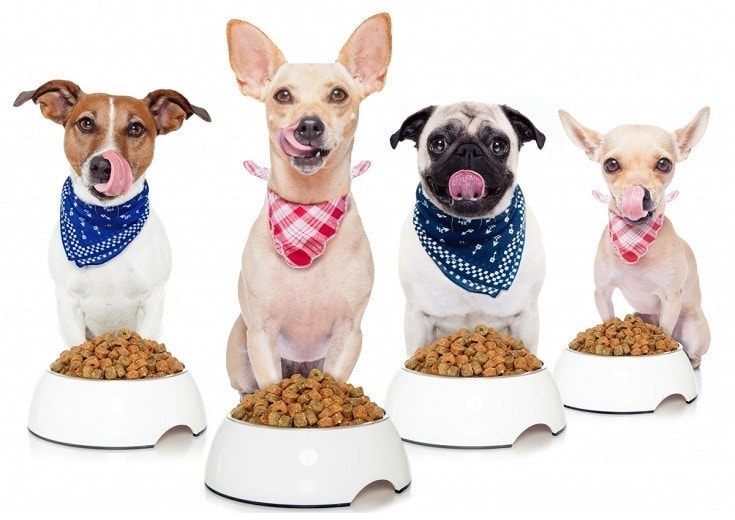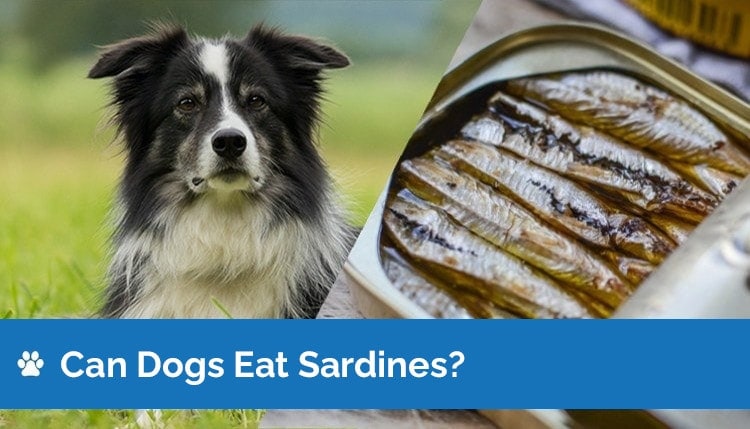Pros & Cons of Grain-Free Dog Food: Which Is Better?

Updated on

If you’ve been hearing mixed messages about grain-free dog food, you’re not alone. You may be wondering if grain-free dog food is actually better or if you may be unknowingly causing your pup more harm than good. Read on for an in-depth examination of this topic.
The Grain-Free Trend
Over the past few years, there’s been an uptick in the popularity and marketing of grain-free dog food. You may have already switched your dog’s food to a grain-free version, believing it to be a healthier alternative and a better match to your dog’s natural diet.

The FDA Alert
Then, a recent study conducted by the FDA pumped the brakes on grain free dog food. Along with other dog owners, you may have taken pause at the news that the FDA had issued an investigation into a potential health risk link between canine dilated cardiomyopathy (DCM) and certain grain-free dog foods, especially those containing peas, lentils, and potatoes. The study was launched after it was discovered that dog breeds that didn’t have a predisposition for DCM were more frequently developing the condition.
Know Your Pros and Cons
With the FDA study remaining ongoing, as a dog owner, you most likely have questions and concerns. Should you be feeding your dog grain-free? Should you change your dog’s food? Unfortunately, there are no easy answers right now. However, knowing the pros and cons of grain-free dog food can help you make a more informed decision when it comes to your dog’s diet.
The Pros: The Benefits of a Grain-Free Diet
A healthy dog shouldn’t need grain-free dog food. If your dog is strong and well, it’s not necessary and possibly not wise to offer a 100% grain-free diet. However, some dogs with certain conditions can benefit from reducing or eliminating their consumption of grains. In this section, we’ll go over when it makes sense to go grain-free.
Check With Your Vet
It’s always best to consult your veterinarian before changing your dog’s food and diet plan. Your vet should be up to date with the latest research and can better direct you toward a specific dog food. Also, if you must change your dog’s food, be sure to make the change gradually over the course of a week.

Obesity
For dogs inclined to gain too much weight or those already tipping the scales, a grain-free diet may be able to help. Grain-free dog food provides your dog with more nutrients for fewer calories.
Certain low-quality dog foods include high-calorie fillers, like corn meal and wheat gluten, that offer little to no nutritional value. Instead, with grain-free dog food, your dog’s metabolism may get a boost in the right direction with higher levels of animal protein.
Although not an ideal choice, as your dog may become hungrier, it can be a helpful option for some dogs. Since obesity can cut years off your dog’s life, grain-free dog food may be worth trying.
Diabetes
If your dog has been diagnosed with diabetes, your veterinarian may recommend a grain free diet. Grain-free dog food can help manage and regulate insulin levels. By eliminating simple carbohydrates, your dog won’t suffer from blood sugar spikes. Some grains can also trigger inflammation.

Cancer
Your vet may recommend a high-fat diet of fish oil, along with none or very few carbohydrates to help your sick pup. This diet can help your dog toward recovery and remission.
Digestive Issues Like Inflammatory Bowel Disease (IBD)
Certain dog foods that contain low-quality grains and carbohydrates can irritate your dog’s digestive system. Your dog may not be able to digest low-fiber carbohydrates, resulting in gas, discomfort, and diarrhea.
Yeast Infections
If your dog recently or frequently has been diagnosed with a yeast infection, you’ll want to dramatically decrease the sugars entering your dog’s system. Yeast infections feed off sugar, so removing it from your dog’s diet will essentially starve the infection, leading to reduced symptoms or a full recovery. Since many grains and carbohydrates are simple starches that break down into sugars, you’ll want to offer your dog a grain free dog food option in order to limit your dog’s intake.

The Cons: The Risks of Grain-Free Dog Food
Of course, you only want the best for your dog, and that includes what you feed them. The grain-free dog food trend has marketed so many of its benefits, it’s hard to believe that this type of diet has the potential to do more harm than good. Since separating fact from hype or panic can be difficult, we’ve done our best to research the latest findings.
What Is DCM?
As mentioned, the FDA reported in June 2019 that they had launched an investigation into the possible link between canine dilated cardiomyopathy (DCM) and certain grain-free dog foods.
DCM is a type of heart disease in which your dog’s heart muscle weakens. Sadly, it often results in congestive heart failure. While some dog breeds may be more at risk for DCM, the recent uptick in cases of dogs with a lesser inclination to develop DCM caught the attention of the FDA.
The FDA discovered a correlation between 16 grain-free dog food brands and the development of this particular heart disease. One of the main factors seemed to be the inclusion of peas, lentils, potatoes, and similar legumes in their list of ingredients. It’s been theorized that this grain-free mixture causes an amino acid imbalance or possibly a deficiency specifically in taurine, which then leads to DCM.
The FDA Study Is Ongoing
As of the present moment, the FDA report is only the beginning of a broader, in-depth study. Unfortunately, there are no definite answers whether grain-free dog food is a health risk for your dog. Worse, your dog may not show symptoms if their dog food is creating adverse health impacts.
However, if your dog has been on a grain-free diet and displaying symptoms such as loss of appetite, pale gums, difficulty breathing, collapsing or fainting, and extreme weight loss, you’ll want to contact your vet and immediately change your dog’s diet. In some cases, the damage can be reversed.
Busting Grain-Free Dog Food Myths
You may find it helpful to clear up a few myths surrounding grain-free dog food. As dog food companies compete for our business, they may contribute to the misinformation surrounding grain-free dog food.
The first myth is a common marketing theme: A dog’s natural biological diet doesn’t include grains. Actually, dogs have evolved over time to digest grains. Ancestral dogs would consume the grains in the belly of their fresh kill. Today’s modern dog has the capacity to digest many grains. For most dogs, grains provide antioxidants, offer energy-rich carbohydrates, and include fiber for better digestion.
Secondly, if your diet is gluten free, you may assume your dog can benefit from gluten-free and grain-free food too. However, you may be a target for marketing, which uses your personal preferences to sway your overall purchasing choices. Many companies formulate their dog food to appeal to what you like to buy instead of what’s best for your dog.
Finally, you may believe that grains are the only source of your dog’s allergies. In fact, it’s rare for your dog to have an allergy exclusively to grains. Don’t discount external environmental factors or other ingredients such as dairy and beef, which may also act as allergens. While grain-free dog food certainly helps some dogs with allergies, it’s not a complete fix for all dogs.
Conclusion
The short and somewhat unsatisfying answer to that question is that grain-free dog food is not necessarily better unless your dog has a specific condition that requires this diet restriction. Considering the FDA report and weighing the risks, you may want to include a few high-quality grains into your dog’s diet, but of course, there’s a debate over which grains deliver the best nutrition.
Ultimately, it’s important to take a closer look at your dog’s brand of food to determine whether the company is providing you with a marketing ploy or is actively researching the best formula. A reputable dog food company will want to provide you with the best ingredients and the best mixture for the health of your dog.
Finally, consider your dog’s unique needs. Throughout your dog’s life, their dietary needs will alter and change. In some cases, grain-free dog food may be exactly what your dog needs to restore their health.
As always, consult your veterinarian. News reports can provide conflicting and confusing information. Your vet should be able to provide you with the latest information and help you tailor your dog’s diet to meet their individual needs.
See also:
Featured Image Credit: novorafael, Pxhere












